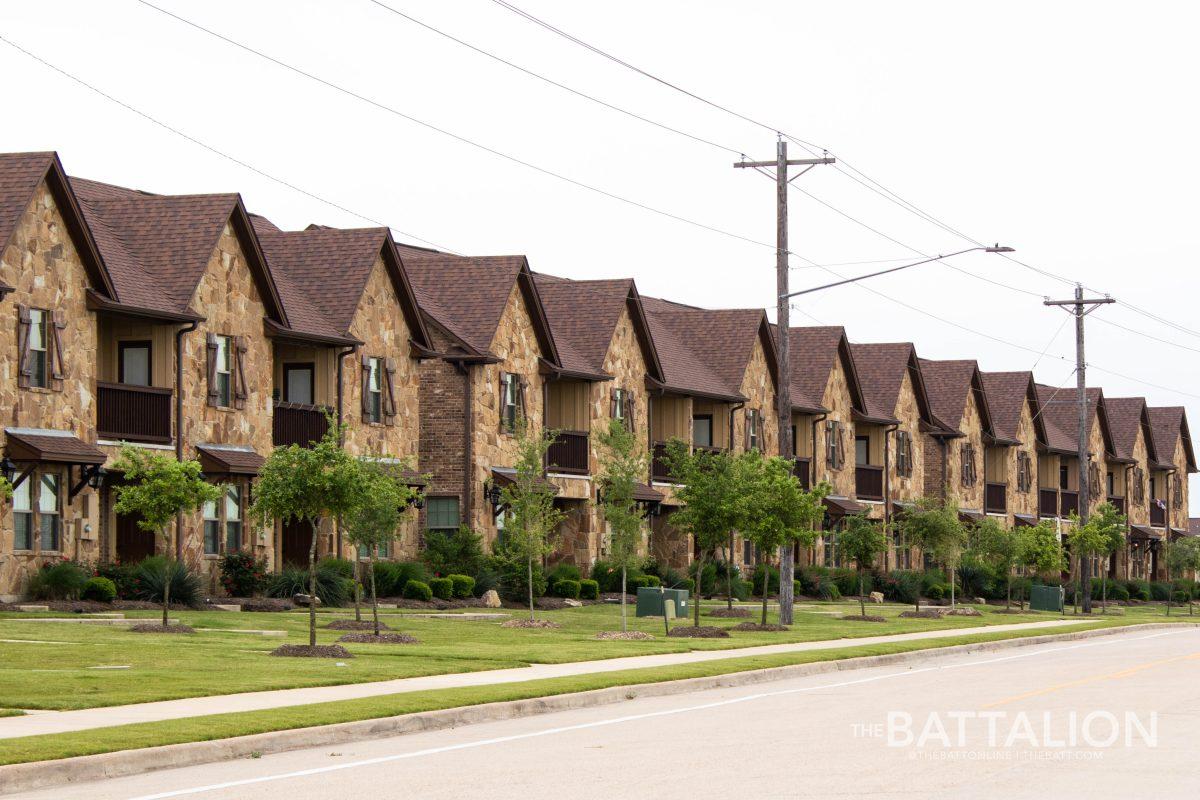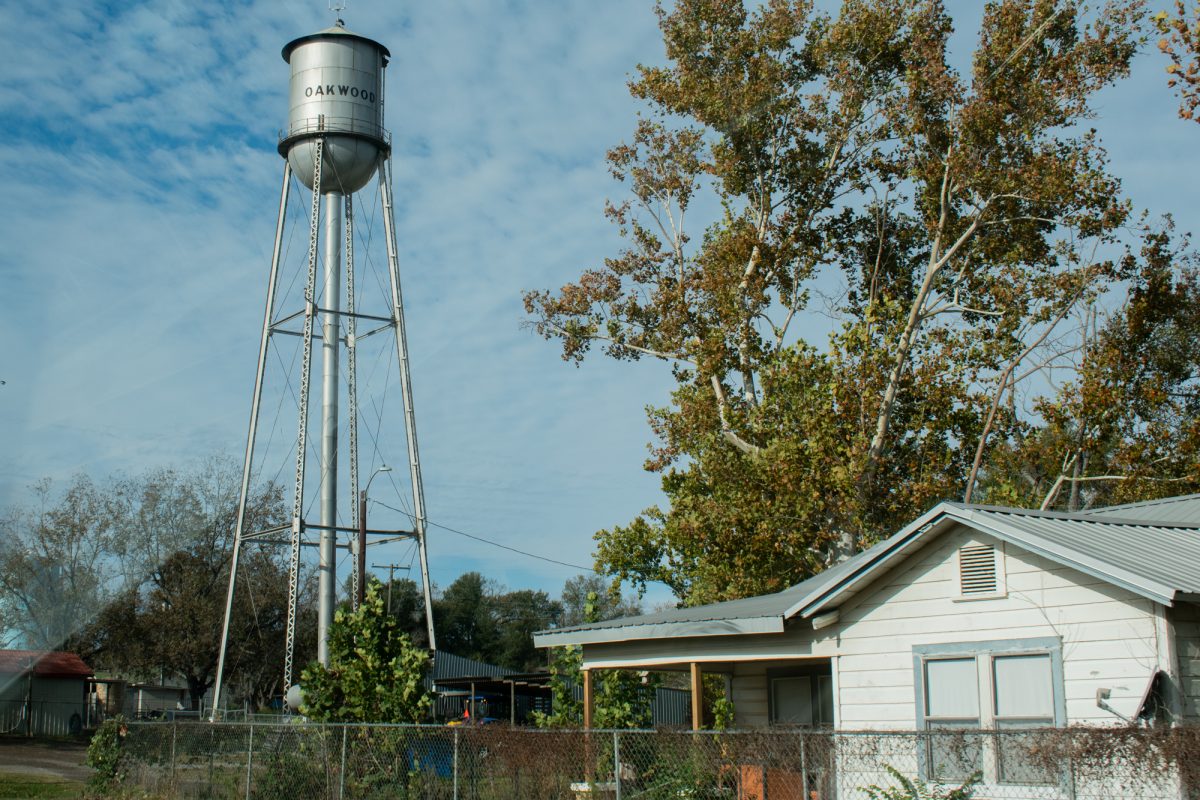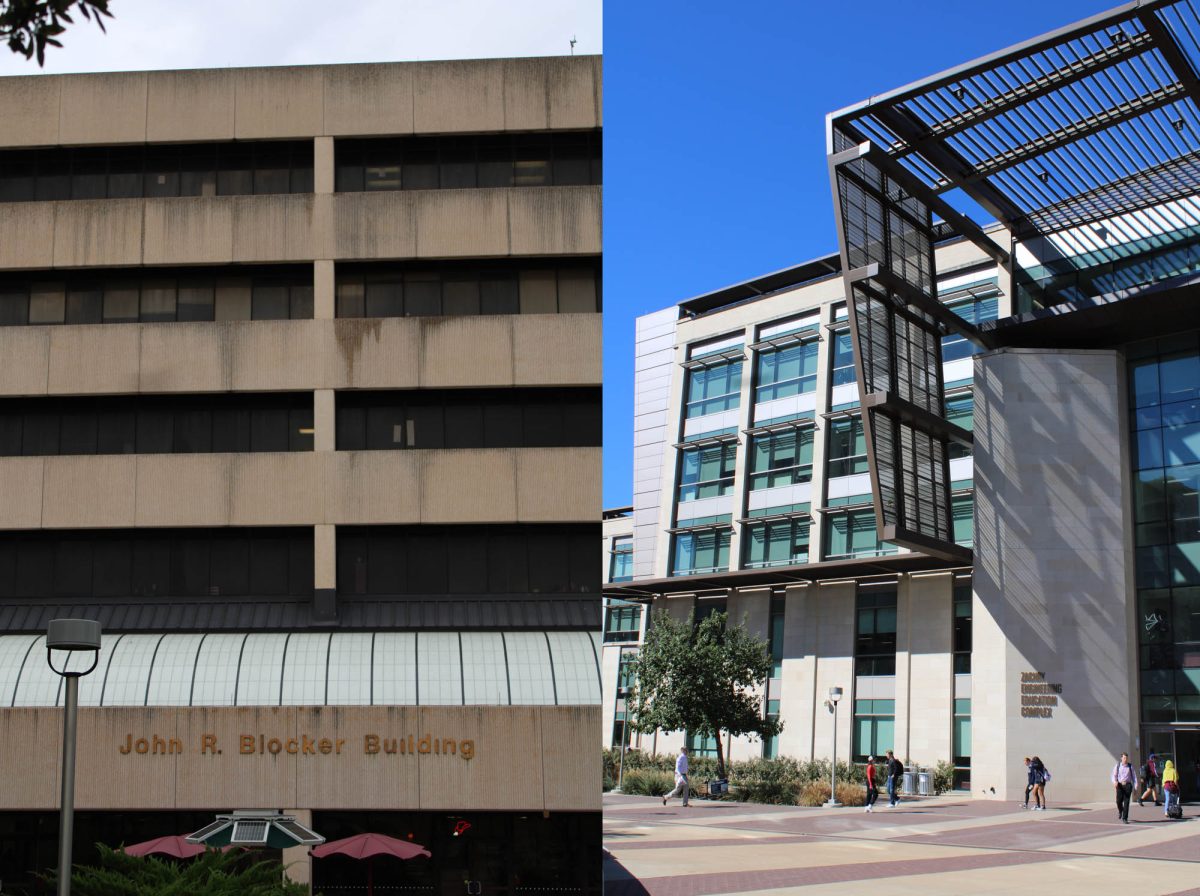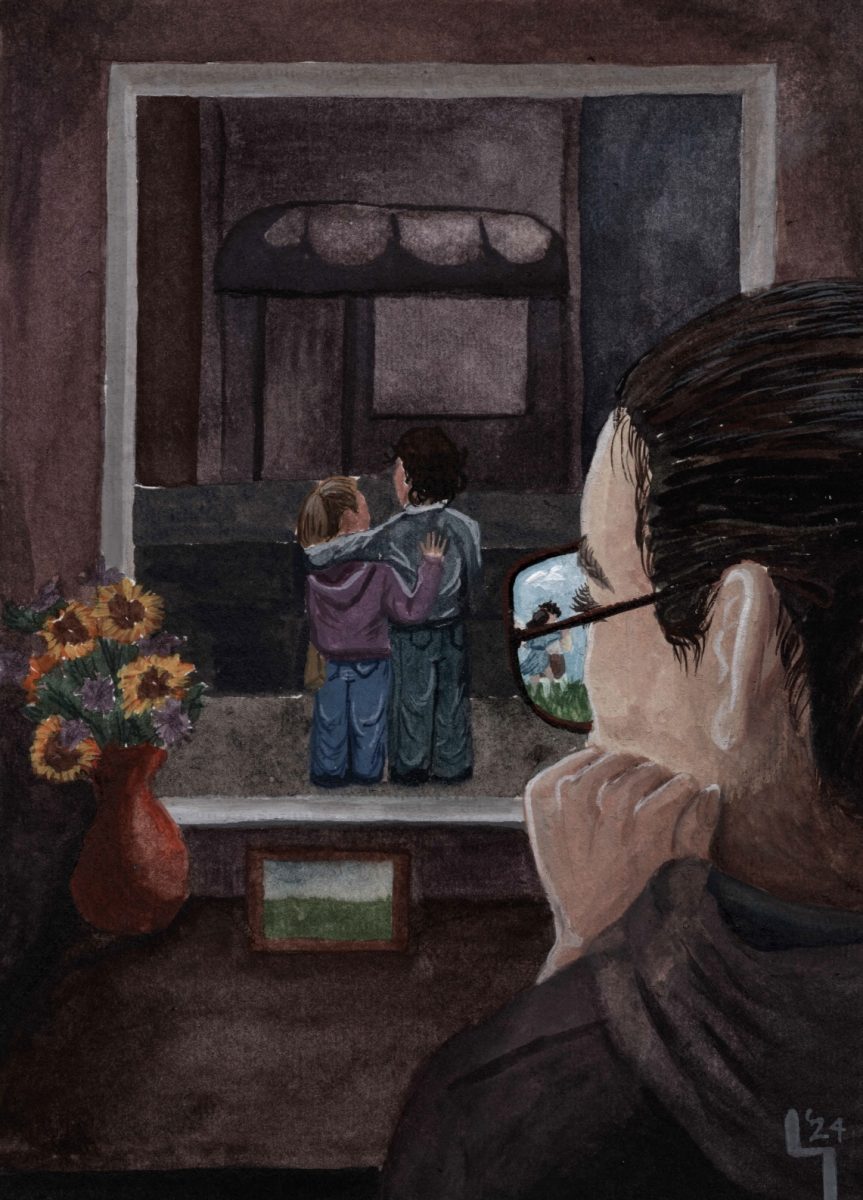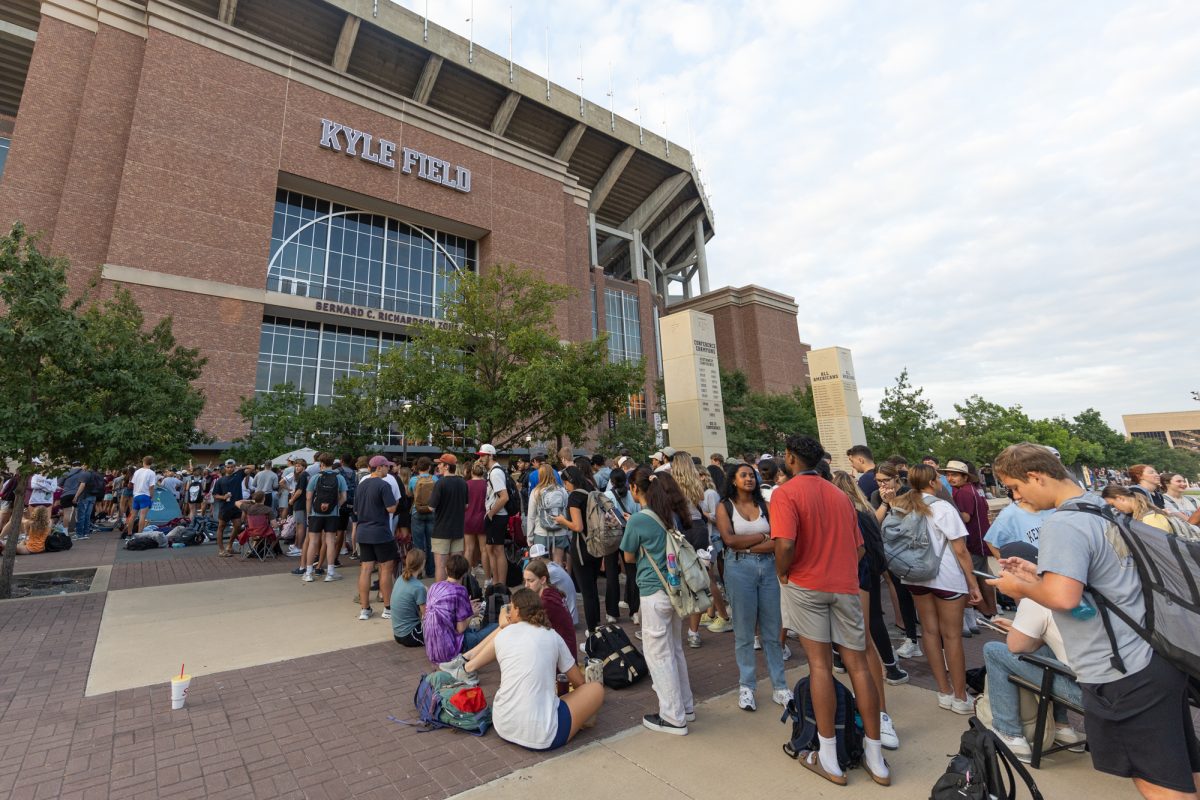If you live in College Station with more than three roommates unrelated to you, you may be slapped with a misdemeanor and a hefty fine to boot. At least, that’s what is promised by the “no more than four” ordinance.
What exactly is “no more than four?” It’s a housing policy in College Station that states that no more than four unrelated people can live in a single residence, the idea being to mitigate the chances of non-student residents having an experience like the one between Seth Rogen and Zac Efron in “Neighbors.”
There are some serious issues with this policy, namely its criminal status and the lack of housing options available to students.
“No more than four” is a criminal ordinance. This means that a violation results in a misdemeanor and up to a $2,000 fine. What’s more, charges can be stacked based on the number of days the offense has lasted.
This is compounded by the fact that most students aren’t aware of the ordinance.
“I don’t know about you, but when I was looking for a place to live in College Station I didn’t review the municipal code beforehand,” political science senior Ben Crockett, Student Government Association vice president of Municipal Affairs, said. “That’s just not something students will think about before choosing the place they’ll live.”
Texas A&M is only now trying to push awareness of the ordinance with awareness signs across campus following the City Council’s crackdown on offenders.
The problem is, I’d wager most students wouldn’t be forced to break the rule if only there was enough affordable housing available. A&M is the largest university in the entire U.S., with total enrollment hovering around 75,000 students, over 69,000 of which belong to the main campus here in College Station.
A&M offers on-campus housing to about 11,000 of those students. According to a City Council meeting statement from Chad Hovde, the former president of the Bryan-College Station Association of Realtors, 17,000 students are currently living in off-campus apartments or in designated multifamily housing. This leaves roughly 40,000 students to find homes in the residential neighborhoods surrounding the university.
The ordinance makes it impossible for this amount of students to find homes close to campus without breaking the bank. Between the cost of tuition, exorbitant textbook price tags and inflation rearing its ugly head in grocery stores and gas stations, it’s harder than ever for students to afford rent.
This leads to rent splitting, or fitting more students into single-family homes just so rent is divided enough times to be affordable. According to College Station this “crime” should be considered on the same level as indecent exposure or low-level drug possession offenses.
One of the catalysts for “no more than four” is College Station homeowners not wanting to live next to students.
“We were attracted to the beauty of the neighborhood and so we love that, but as soon as you drive over to the west side of Bryson Park, the streets are really lined with cars and you also have students parking on the lawns,” one resident speaking at a City Council meeting said.
Let me get this straight — she’s upset that a college town that’s literally only known for being home to A&M has lots of college students? If you’re afraid of having student neighbors, either don’t live in a place called College Station or don’t live close to the main campus of the largest university in the nation. It’s as simple as that.
The vast majority of student residential homes are not your stereotypical party houses that trash their lawns with empty cans of Lone Star and hotbox their little two-bedroom on the weekends. Most are just trying to get through their four years without tearing out their hair over rent payments or housing instability. Exams and ornery professors are hard enough.
If College Station continues with its housing crackdown, students will be leaving A&M with misdemeanors to complement their thousands of dollars of student debt. Instead of criminalizing affordable housing, College Station should look for solutions to the problem.
First, we could transition to the more universally accepted standard laid out by the U.S. Department of Housing and Urban Development, which suggests a 2-person-per-bedroom guideline. This would alleviate some of the issues for students trying to find affordable housing. To mitigate the worries of non-student residents, a greater focus could be placed on public nuisance ordinances and parking regulations.
This is an ideal scenario, but it would take time. An immediate solution would be to transition “no more than four” from a criminal offense to a civil one. While this does mean that the burden of proof would be lessened — therefore possibly increasing the number of offenses — it would ensure that no student suffers the long-term consequences of having a misdemeanor on their record just because they weren’t familiar with the municipal housing codes in their area.
“These students aren’t numbers, they’re Aggies, they have names,” Crockett said. “We don’t want anyone leaving the greatest university in the world with anything other than good memories and an Aggie ring.”
As students, we can help usher in change.
“The best thing students can do is to come to City Council meetings, especially if you’ve been personally affected by No More Than Four,” Crockett said. “It helps the Council see that you’re a face, not just a number, and humanizes the issue.”
There’s also a petition you can sign. Now, I know what you’re thinking — online petitions are completely useless. But this one really can help. If enough students sign it to be a relevant percentage of the affected population, City Council members will take notice.
It’s time to stop the demonization of students searching for affordable housing. No more “no more than four.”
Charis Adkins is an English junior and opinion columnist for The Battalion.



